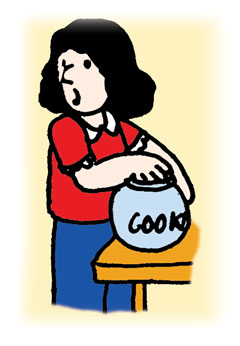 “Whoever conceals his transgressions will not prosper, but he who confesses and forsakes them will obtain mercy” (Prov 28:13, ESV).
“Whoever conceals his transgressions will not prosper, but he who confesses and forsakes them will obtain mercy” (Prov 28:13, ESV).
It’s easy to cover over a sin (at least if it’s our sin and not someone else’s). We naturally want to cover sin instead of acknowledging it and repenting of it.
Read what Matthew Henry says about this proverb:
Here is, 1. The folly of indulging sin, of palliating and excusing it, denying or extenuating it, diminishing it, dissembling it, or throwing the blame of it upon others: He that thus covers his sins shall not prosper, let him never expect it. He shall not succeed in his endeavour to cover his sin, for it will be discovered, sooner or later…He shall not prosper, that is, he shall not obtain the pardon of his sin, nor can he have any true peace of conscience…While the patient conceals his distemper he cannot expect a cure.
2. The benefit of parting with it, both by a penitent confession and a universal reformation: He that confesses his guilt to God, and is careful not to return to sin again, shall find mercy with God, and shall have the comfort of it in his own bosom. His conscience shall be eased and his ruin prevented…”
I looked up all those big words at the beginning of this quote, and I think we can summarize our methods of covering sin like this:
- We make excuses.
- We deny that we have sinned at all.
- We minimize it.
- We lie about our motives or intentions.
- We blame others.
In the case of a child taking a cookie from the cookie jar without permission, it might look like this:
- Excuses: “I was really hungry.” “I forgot.” “I didn’t know I couldn’t have one.”
- Deny: “It wasn’t me.” “I don’t have my hand in this cookie jar.”
- Minimize: “It was just one cookie.” “I just took one bite.”
- Hypocrisy: “I was getting this cookie for you.” “Johnny was hungry and I thought he might like a cookie”
- Blame: “Johnny wanted me to take it.” “You didn’t tell me I couldn’t have a cookie today.”
What about after one child hits another child?
- Excuses: “I’m really tired.” “I’m in a bad mood today.” “I couldn’t help it.”
- Deny: “I didn’t hit him.”
- Minimize: “I didn’t hurt him.” “I just barely touched him.”
- Hypocrisy: “I didn’t want to bother you.” “He was bothering __. I was just defending her.”
- Blame: “He touched me first.” “He kept bugging me.” “He makes me so mad.” “He was being stupid.”
When he takes a toy from another child:
- Excuses: “I haven’t gotten to play with it at all yet.” “He didn’t say he still wanted to play with it.” “I didn’t know he was still playing with it.”
- Deny: “I didn’t take it.” “He gave it to me.”
- Minimize: “I didn’t take it. I’m just using it for a little while.” “I didn’t grab it. I just picked it up.” “It was just sitting there.”
- Hypocrisy: “I thought someone else might want to play with it.” “I thought it would good for him to learn to share.”
- Blame: “He’s played with it all morning.” “He’s not giving anyone else a turn.” “I didn’t give it to me when I asked him to.”
When we gossip:
- Excuses: “I didn’t realize it wasn’t common knowledge.” “I knew you would understand.”
- Deny: “This is not gossip.” “I didn’t say that.”
- Minimize: “I’m just telling the truth.” “I’m just telling you what I think.” “I just needed to tell someone about this.” “I know you won’t tell anyone else.”
- Hypocrisy: “I just wanted you to know how to pray.” “I’m just really concerned about her.” “I thought it would be good for you to know.” “Somebody needs to do something about the situation.”
- Blame: “She was so rude to me.” “That’s what ___ told me.”
When we complain:
- Excuses: “I’m exhausted.” “I’m totally overwhelmed.” “I can’t keep going like this.”
- Minimize: “I just need to vent a bit.” “I feel better after getting this off my chest.” “You just don’t understand what I’m going through.”
- Blame: “I’m just so tired of dealing with him.” “Can’t she see what she’s doing to me?” “Nobody listens to me.”
- Hypocrisy: “It doesn’t seem good for her to never be accountable for doing her share.” “I just want you to know how to pray for me.”
- Deny: “I’m not complaining, you know.”
By our example and with our words, we must train our children to own up to sin, to quickly acknowledge and forsake it. Like Matthew Henry said, “While the patient conceals his distemper he cannot expect a cure.” None of us will ever “get well,” we will not move forward, we will not break out of our slavery to sin, until we admit that we are sinners and that we are sinning.
Lead a child to the place of acknowledging his sin. Train him to say, “I was wrong. Please forgive me.” Teach him to forsake his sin, changing his course and doing what is right.
Remind him that we serve a God of grace, who gave His Son to free us from sin. We can believe and rest in the words of 1 John 1:8-9, “If we say we have no sin, we deceive ourselves, and the truth is not in us. If we confess our sins, he is faithful and just to forgive us our sins and to cleanse us from all unrighteousness” (ESV). Each time he sins, he has the privilege of confessing his sin, accepting forgiveness, and starting over.

2 Trackbacks